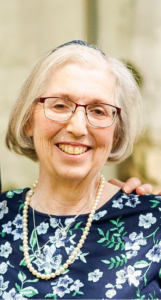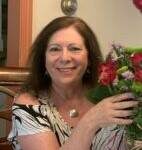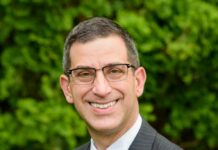
Rabbi Joan Sacks
Parshat Shemot
“Disability only becomes a tragedy for me when society fails to provide the things we need to lead our lives — job opportunities or barrier-free buildings, for example. It is not a tragedy to me that I’m living in a wheelchair.”
— Judy Heumann (1947-2023), “Mother of the Disability Rights Movement”
When God calls Moses into leadership at the burning bush, Moses at first resists the call, explaining that he has a limitation in his ability to speak — he is ch’vad peh and ch’vad lashon: literally heavy of mouth and heavy of tongue (Exodus 4:10). The rabbis suggest that Moses resists God’s call because he has a stutter.
Rather than turning away from Moses and seeking another leader, God provides what Moses needs to step into leadership, namely assigning Aaron as his spokesperson. God sees Moses as fully capable of leading the Israelites and provides an accommodation — the support of Aaron — so that Moses can serve in this role.
People with disabilities have so much to offer our Jewish communities, and yet there are so many barriers to their involvement. I have been a disability rights advocate for decades, and I recall in the 1970s, when I was working as a Jewish educator, fighting hard for b’nai mitzvah ceremonies for my students with disabilities.
A physical or intellectual disability should not preclude a young person from being celebrated nor from being invited to share their Torah with the community. Everyone has something important to teach. Our communities have thankfully evolved so that the right to a bar/bat mitzvah ceremony is now a matter of course.
For the past 13 years, I have primarily been homebound due to disabilities. I love synagogue life — the davening, the music, the friendships, the Torah study. Over the years of being isolated at home, I have been a fierce advocate for paths to inclusion in Shabbat and holiday services, as well as other synagogue programming, for those of us who are not able to join in person.
Over the years, I was told that there were too many barriers to making services virtual. It was only during the pandemic, when in-person services were shut down for everyone, that my congregation began to offer online participatory services. I belong to a Conservative congregation and, in May 2020, the movement’s Committee on Jewish Law and Standards passed a teshuva (ruling) supporting congregations in offering virtual services on Shabbat and holidays.
The Zoom services and classes I attended were exhilarating: I could once again participate as an equal in my beloved Jewish community. During the pandemic, I reconnected with old friends and made wonderful new friends by participating in virtual programming.
It is a moral imperative for Jewish communities to continue to offer online access to services and programs so that members with disabilities can actively participate. Moses needed Aaron. Those of us who cannot come to synagogue in person need virtual access to celebrate Shabbat and holidays in community. As Judy Heumann, may her memory be for a blessing, taught, it is not a tragedy to have a disability; it is a tragedy when society fails to provide the basic things we need to lead our lives.
I am devoted to working with other members of the community to which I belong to make our congregation accessible. We now have an ad-hoc disability committee that is focusing on addressing both physical barriers in the building as well as online accessibility for those who cannot come in person. I am heartened by the commitment of these allies to learning about the barriers and investing resources in creating pathways to access.
One of the challenges is that people with disabilities are often invisible due to the barriers. These barriers arise on both the concrete level and the emotional level. Often, people with disabilities are treated as though they are less than others, which leads to embarrassment and hiding.
I challenge us to shift perspective and ask: Where would the Israelites be if Moses had not been given accommodation for his speech impediment? How much richer will our communities be when people with disabilities become more active participants in communal gatherings? My prayer is that one day it will be a matter of course that all of our spaces — both physical and virtual — become accessible on Shabbat and throughout the week.
Rabbi Joan Sacks is a retired chaplain who specializes in geriatrics and hospice care. She is a long-time advocate for disability rights. Rabbi Malkah Binah Klein assisted in writing this d’var Torah. The Board of Rabbis of Greater Philadelphia is proud to provide diverse perspectives on Torah commentary for the Jewish Exponent. The opinions expressed in this column are the author’s own and do not necessarily reflect the view of the Board of Rabbis.





